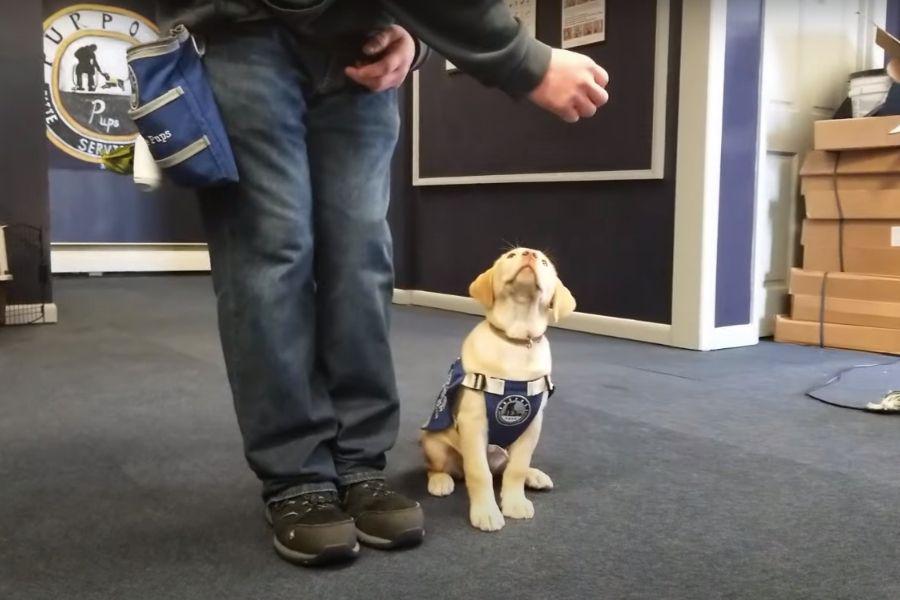When people enter the court system, as a plaintiff or a defendant or a witness, there is often a lot of stress involved. The process of going through the justice system itself is stressful, but the circumstances that bring people to court are often marked by tragedy or trauma of some sort as well. There is a clear need for mental and emotional support, especially for kids, in the courtroom.
Thankfully, society has figured out that animals can be a helpful source of stress relief and comfort and the idea of animals in spaces like a courtroom is being embraced more and more.
Though another county has an unofficial support dog, Aroostook County will be the first county in Maine to have an official therapy dog onsite at the courthouse, according to Bangor Daily News. That dog is a yellow Labrador retriever puppy named Holiday, who is currently in training to work with people who have been through traumatic experiences.
Holiday was donated by local breeder Karley Allen, who told the Daily News that part of her mission is to donate puppies for therapy and service work. “I believe wholeheartedly in the power of a dog,” she said. “They are truly heart healers that give endless love and can give so much back to our communities when placed in these roles.”
It will take two years—208 hours of training—for Holiday to learn all she needs to know for her important job, including learning to be still and silent in the courtroom, walking and sitting on command and staying seated in one spot for an extended period of time. She’ll also be trained to go with the district attorney on investigations to help people who have been hurt or traumatized.
Holiday actually lives with Aroostook County District Attorney Todd Collins, and both he and Holiday are being trained so that she will be able to follow his commands.
Collins told Bangor Daily News that his goal is to help survivors and witnesses who are reliving traumatic events in the courtroom relieve some of the stress and psychological damage they may experience.
“Courthouse facility dogs can provide a sense of normalcy during juvenile and family court proceedings, and can accompany vulnerable crime victims, including children, rape victims, developmentally delayed adults and the elderly during investigations and court proceedings,” Collins said. “They can also provide emotional comfort to family members during the trial and sentencing of the offender.
“A courthouse dog can provide emotional support for everyone,” he said.
The use of courthouse facility dogs like Holiday has increased greatly in recent years. Superior Court Judge Jeanette Dalton of Kitsap County, Washington, told PEW that the yellow lab that has been deployed in her courtroom numerous times has helped child witnesses who have been abused have an easier time testifying.
“Sometimes they need the leash in their hand. Sometimes they need the dog touching their feet. Sometimes they just need to see the dog,” she said.
Some concerns have been raised that having a dog with a child on a witness stand may sway a jury by making a child appear more sympathetic or more credible. But Dalton says she’s seen how the dogs can actually help witnesses stay calm, which can create a less intense emotional situation for both the children who take the stand and the jurors.
“I’ve seen jurors visibly impacted by kids so stressed on the witness stand that they start crying or shut down. Jurors look like they want to leap over the jury box and cuddle that kid,” Dalton said. “So having the dog there helps everybody on both sides.”
Collins also pointed out that it’s not just witnesses, plaintiffs or defendants who experience trauma in the criminal justice system. First responders, people who work with victims, detectives who are exposed to violent scenes or images and others whose work puts them in close, constant contact with human trauma also need emotional support. Having an animal trained for such purposes around can truly benefit everyone.
Watch trainer Tyler Jones working with Holiday as she starts her training. Such a good girl.
































